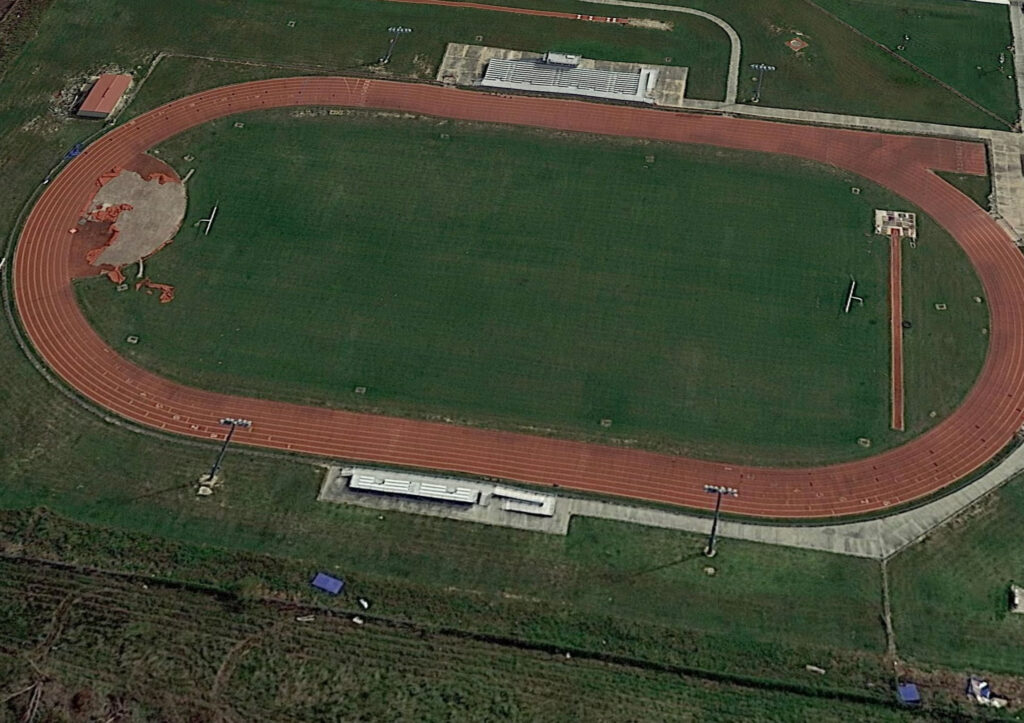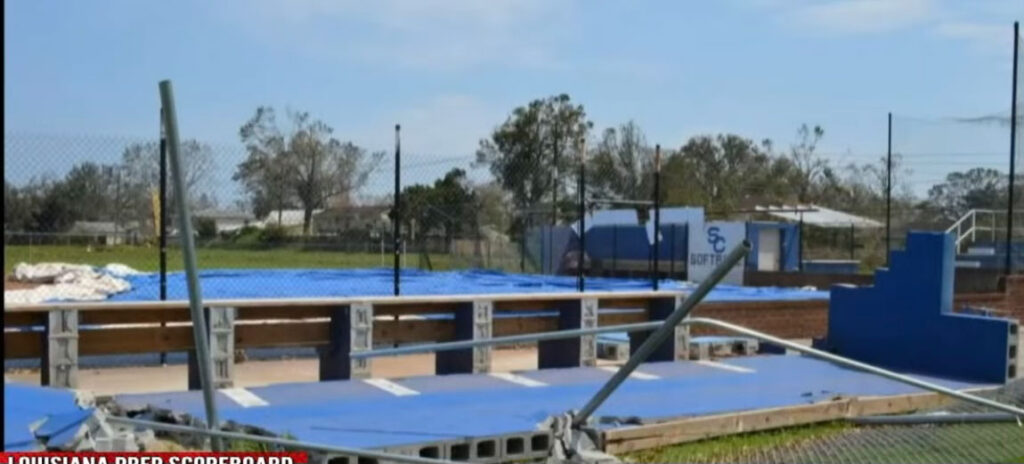
Todd’s Take: Three Examples As To Why High School Football is Good for the Soul
By Todd Black // ESPN 104.5 – Baton Rouge • Louisiana Prep Scoreboard
In 2020, the United States faced a pandemic that caused a rise in teenage depression like never before. I have sons in high school sports, so this posed a major concern for my wife and I. After doing a lot of research from reading studies to reviewing the CDC website, I decided to write an article based on my opinion as a parent.
My conclusion from research resulted in this thought process, “if I had a choice of my son playing athletics, contracting covid and dying compared to sitting at home, depressed and committing suicide – I would prefer him taking his chances playing athletics.” The morbidity and mortality data for teenagers via covid was next to zero. Those comments were considered ‘over the top’ by a few uneducated readers.
The University of Wisconsin found that approximately 68 percent of the 3,243 teens polled have reported feelings of anxiety and depression at levels that typically require medical intervention — nearly 40 percent higher than past studies. The lead researcher of the study at Wisconsin, Tim McGuine, said “the greatest risk [to student-athletes] is not covid-19. It’s suicide and drug use.”
This brought concern to the National Federation of High Schools as the NFHS was aware of the increases in depression and suicide but it became an even bigger concern because now, the kids didn’t have school and they didn’t have sports.
The take from this study is how much high school sports mean to our kids, our community, and our soul. High School athletics creates a bond within our communities that communities without High School athletics cannot have.
The following are just two stories of many in which high school sports gave communities hope and the kids of these communities something to look forward to doing.
Last year, while doing our Friday night show for high school football, I ran across the Grand Lake Hornets. Honestly, I had heard of Grand Lake and knew they were in southwest Louisiana but that was about it. When I looked up Grand Lake on the map, this 1A school was located south of Lake Charles.
Knowing the devastation this area of the state had gone through and knowing Google Earth updates views of these areas, I pulled up Grand Lake. I was in disbelief. The buildings that stood were few and far between; yet the Grand Lake Hornets were about to play in the quarterfinals of the LHSAA football playoffs, how?
I called the head coach of Grand Lake, Jeff Wainwright, and said, ‘when you win tonight, I’m going to give you a call so you can tell your story.’ The Hornets won and what we learned from Coach Wainwright’s phone call was next to unimaginable. Both eyes of Hurricane’s Delta and Laura had crossed over Grand Lake High School. Laura, on August 27 with sustained winds of 150 mph followed by Delta, 44 days later on October 9. Delta’s sustained winds were around 100 mph; markers in the area had recorded gusts in the 200 mph range.

That night, Grand Lake loaded up the buses for their quarterfinal game vs Centerville. The Hornets won 27-6. When we caught up with Coach Wainwright on their bus ride home, I think we knew it was bad, but not like this.
During our call, we talked about the devastation to the community. Coach Wainwright told us “as the Hornets were leaving town, one of their players’ home was being pushed to the road.” To say the least, the home life for the Hornets and their community was in chaos, no electricity, no home, and the battles between families and insurance were taking their toll. The community’s mental well-being was hurting.
After the storm, Coach Wainwright wasn’t sure if the Hornets could field a team, but the turnout was more than they expected. Coach told the parents, “thank you for letting me do my job.” He knew parents needed their sons at home, but the parents knew how much their sons needed Coach Wainwright and the Hornet football program. As any good coach would do, Wainwright asked his boys that each and every Friday night, they fight for their parents and their struggles but most importantly, have fun. Friday nights bonded the Grand Lake community, gave them hope, and would be the one thing that everybody looked forward to, watching their sons, neighbors, and relatives play high school football.
The next week the Hornets were playing their semifinal game right outside of Baton Rouge in St. Gabriel vs East Iberville. Covid limited their seating and Hornet fans were allotted only 250 tickets. During that week, a lot of the Grand Lake community drove over (Close to a 5-hour drive round trip) to buy tickets for the semifinal matchup. A lot of families simply could not make it or the game was sold out. But for those families who could not make it, I received permission from the LHSAA to FaceTime the game for the community to watch, at times there were between 400-500 people viewing. Those fans watched their Hornets, through my shaking cold hands, defeat East Iberville to move on to the state finals.
A year later, unfortunately, Louisiana saw yet another Hurricane impose her will on our Gulf Coast, this time Hurricane Ida made landfall on August 29, 2021, in the Southeastern part of the state around Port Fourchon. Ida carried sustained winds at 150 mph with gusts over 200 mph. This path had a devastating effect on a lot of Louisiana towns, cities, and high schools. The eye-wall went through Terrebonne and St John the Baptist Parishes, through Ascension, Livingston Parishes northward. Schools as far south as South Terrebonne HS to high schools in the Hammond and Mandeville area were impacted by Ida. The rallying cry was ‘get the kids back on the field.’
The St Charles Catholic Comets reside in the parish of St. John the Baptist in the town of LaPlace. Last Tuesday I was invited to speak at their QB Club meeting. After getting a tooth pulled, I headed to LePlace. On the way, I was on the phone with a good friend, the Comets Defensive Coordinator, Jason Brown. Our conversation started with football and ended by discussing the status of the LaPlace community and the surrounding areas.

Head Coach of St Charles, Wayne Stein, told us after the storm, coaches would go house to house helping any way they could, this one question would always seem to be asked, ‘when is football going to start?’ These houses received water in the bottom from flooding and rainwater through the top but they wanted to know ‘when does football start!’ Coach Stein, as the first-year head football coach, told us after the third practice, the Comets had every player at practice, and “that’s when I realized how important football was. Football was the only normalcy they had.”
To give you an idea of how the LaPlace community is holding up, as of today, 80% of the kids on the football team are still without a home and blue tarps are more visible than are rooftops. In their quarterfinal matchup, the senior class had yet to play a Friday night home game on their home field. The coaching staff thought it was important they have that experience, so the community came together, found temporary lighting, and made it happen. St. Charles beat Dunham 27-0
This past Friday night the Comets were on the road vs Notre Dame; St. Charles won 17-13 and advanced to the state championship.
Destrehan is a community not far from LaPlace that is in the 5A semi-finals of the state championship. ED White is in the Houma/Thibodaux area, and they are appearing in their state championship for the first time since 1981. But for schools that didn’t make it to the playoffs, being able to rally around a cause that is so pure during times that are so difficult is good for the soul.
There are many examples of communities coming together under adverse circumstances, these are two examples of the ones I’m the most familiar with.
The one thing I would encourage is, do not forget about these communities. Their souls may be healed but their communities still need our help. Pureness and innocence are always good for the soul no matter your age.
